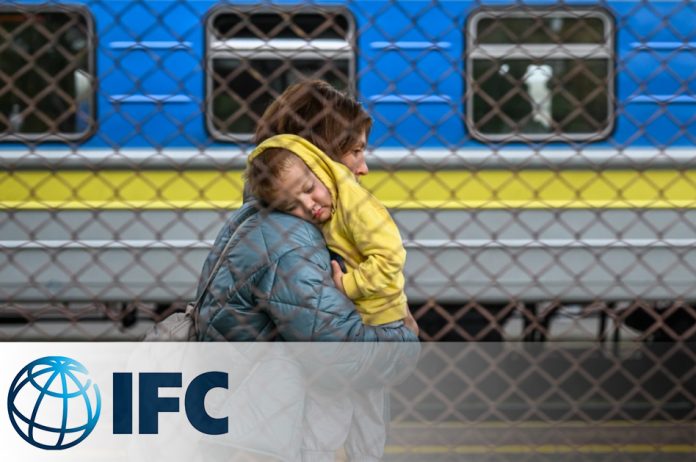IFC and Biroul de Credit, a significant credit agency in Moldova, announced the start of a new mechanism to support Ukrainian refugees. Basically, it will increase their assistance for Ukrainians in the midst of the continuing war. The objective is to strengthen the economic resilience of both nations and generate jobs by enabling Moldova to provide more financial and non-financial services to those who were compelled to flee the war in Ukraine.
Since February 24, around 421,000 Ukrainian refugees have fled to Moldova, with about 100,000 preferring to remain there, according to the UN. However, due to a lack of an international data sharing mechanism, Moldova’s financial institutions have found it difficult to manage the unexpected flood of potential consumers.The Russian invasion of Ukraine also triggered a deep economic crisis in Moldova, with its growth forecast dropping to zero in 2022.
IFC funded the formation of a collaboration between the Bureau de Credit and the Ukrainian Bureau of Credit Histories in order to help Moldova set up its first cross-border electronic data exchange system. These credit bureaus were audited by IFC, which also evaluated the potential for cross-border data interchange and efficient data utilization by financial institutions in the two countries. These organizations will be able to access credit records of Ukrainian refugees seeking banking and other services in the host nation thanks to the new tool.
“This pioneering initiative will allow Ukrainian citizens to show the positive credit history they earned back home and build trust with a future employer, and access finance from banks and other financial institutions. In turn, Moldovan banks and financial institutions will be able to provide access to financing based on the full identity of the borrower, similar to financing in the domestic market,” said Silviu Foca, Director General at Biroul de Credit S.R.L.
FOR THE MOST IMPORTANT NEWS, FOLLOW US ON FACEBOOK!
The new Digital Data Corridors initiative, carried out in collaboration with the UK’s Good Governance Fund (GGF) and the Swiss State Secretariat for Economic Affairs SECO, will assist financial institutions in Moldova in working electronically across borders, verifying identities, and receiving bank transaction data in real time. With this knowledge, Ukrainian refugees in Moldova will have easier access to credit cards and loans, among other financial products, and banks can legally serve new clients.
“This partnership aims to provide direct assistance to Ukrainians who have been forced to leave their country and temporarily relocate to neighboring countries. This is the first time a credit bureau in Moldova has participated in an international data exchange network,” said Lisa Kaestner, IFC’s Regional Manager for Ukraine and Moldova. “This step toward integration of financial systems is critical to help Ukrainian refugees rebuild their lives away from their home,” added she.
Poland, Georgia, Latvia, Lithuania, Slovakia, and the Czech Republic already use the data exchange system. IFC is holding a series of conferences in various nations, including Moldova, to better provide banks with the resources they need to cater financial services to the requirements of refugees.
The Ukraine Resilience Program, which will support initiatives in Ukraine, is another project being worked on by IFC. Finances for company preservation, displaced people, affected towns, and urgent logistics and energy needs will be given priority throughout the war. Additionally, it will assist fund preparations for Ukraine’s restoration, which will require a lot of cooperation from the private sector.
About IFC
IFC—a member of the World Bank Group—is the largest global development institution focused on the private sector in emerging markets. We work in more than 100 countries, using our capital, expertise, and influence to create markets and opportunities in developing countries. In fiscal year 2022, IFC committed a record $32.8 billion to private companies and financial institutions in developing countries, leveraging the power of the private sector to end extreme poverty and boost shared prosperity as economies grapple with the impacts of global compounding crises. For more information, visit www.ifc.org.


